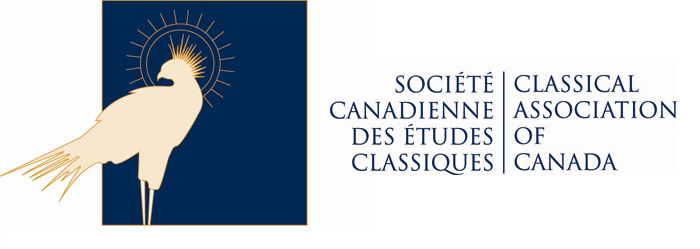Collaborative Doctoral Award Opportunity at the British School at Rome (Deadline January 31)
Death in the Suburbs: developing a new interdisciplinary methodology at Falerii Novi to study ancient funerary landscapes
Led by School of Advanced Study in collaboration with British School at Rome.

Collaborative Doctoral Awards (CDAs) provide funding for doctoral students to work on a project in collaboration with an organisation outside higher education. They are intended to encourage and develop collaboration and partnerships and to provide opportunities for doctoral students to gain first-hand experience of work outside the university environment. They enhance the employment-related skills and training available to the research student during the course of the award. Collaborative Doctoral Awards are not only a route into academia but also provide hands-on work experience in the cultural sector and transferrable skills.
The studentship includes a stipend at the Research Council UK Home/ EU rate (£21,237 per annum – 2024/25 rate) plus fees for three and half years. The awarded candidate will also be entitled to a £600 per annum stipend top-up (2024/25 rate). Studentships can be either full or part-time. As a LAHP student, the successful candidate will have full access to the LAHP Doctoral Training Partnership development activities and networking opportunities, joining a cohort of about 90 students per year.
CDA project description
This project will systematically document and analyse for the first time in Italy an entire ancient funerary landscape at Falerii Novi spanning over 1000 years (ca. 500 BCE–700 CE). It develops and applies an interdisciplinary approach to studying funerary landscapes with wider scientific relevance, integrating archaeological, historical, computational and scientific analysis. The student will use, for example: photogrammetry to digitally document individual tombs and generate robust 3D digital records; GPS recording to document tomb locations and GIS and spatial analysis to interrogate landscape evolution and networks of movement; archival research to recontextualise material displaced by earlier archaeological interventions; and cutting-edge scientific techniques to study tomb material composition linked to resource exploitation, economic networks and sociocultural change. In this manner, the project will assess local evolutions in funerary practice and architecture, relationships to landscape and resource exploitation, and connectivity to roads and settlements over the longue durée, and therefore generate significant original research for Falerii Novi and other central Italian towns: remarkably, there has been little attempt to understand the town’s cemeteries as a whole and their chronology. 3D documentation and modelling will create high-resolution digital archives of a neglected ancient suburban landscape at a crucial point in time, sharing these with Italian cultural heritage agencies. Results will have broad national and international impact, encouraging new debate around how ancient communities thought about their past, planned for their future, and expressed themselves in the present, along with relationships between urbanism, death and sociocultural shifts (e.g. pagan to Christian). It is hoped that the methodology developed can be used as an engagement tool with other projects and activated at comparable archaeological sites with similarly extensive funerary landscapes. This project is set alongside ongoing excavations by the Falerii Novi Project, co-led by the partner institutions, and benefits from the opportunity to directly integrate intramural socioeconomic data, repairing traditional scholarship that sees death as separate from urbanism and the social and economic life of an ancient city.
CDA project team
- Primary academic supervisor: Dr Emlyn Dodd (Institute of Classical Studies, School of Advanced Study, University of London) – emlyn.dodd@sas.ac.uk
- Second academic supervisor: Dr Corinna Riva, secondary supervisor (Institute of Archaeology, University College London) – c.riva@ucl.ac.uk
- Collaborative Partner supervisor: Dr Stephen Kay, partner supervisor (British School at Rome) – s.kay@bsrome.it
Specific requirements:
Essential
- Experience of archaeological fieldwork, whether in excavation, survey or otherwise.
- A prior degree in Archaeology.
- Willingness to spend periods of time abroad in Italy undertaking fieldwork and research, and to engage with heritage agencies and fieldwork teams.
Desirable
- Experience with GIS software, GPS equipment, photogrammetry or 3D modelling.
- Experience in Italian archaeology and related material culture, especially of the 1st millennium BCE to 1st millennium CE.
- Some knowledge of Italian language and/or the aspiration to further develop Italian speaking and reading skills
While it is not essential for applicants to have experience in the full range of methods and techniques proposed for this project, experience in some of them will be an asset. Training and professional development opportunities via the ICS and BSR will be available to up-skill in certain areas.
Student Eligibility
- LAHP welcomes applications from ‘home’ and ‘international’ (including EU) applicants (Please refer to ‘International Students‘ section below);
- Applicants should have a good undergraduate degree in a relevant discipline, and a Masters-level qualification or equivalent which meets AHRC requirements for research training. Applicants with relevant work/professional experience who are considering doing a PhD are also encouraged to apply.
- Applicants are subject to meeting the host university’s (i.e. the institution where the lead supervisor of the CDA is based) admissions criteria, and any LAHP award is conditional on the candidate being offered a place to study at the host university.
- Students who are currently undertaking a PhD are not eligible to apply for these CDA projects. However they can consider applying to the LAHP open studentship competition, provided that they have at least 50% left of the PhD studies from the start of the award (i.e. October 2025) to the start of their writing up period.
- Please contact the Admissions Office of the CDA project’s lead institution where you are applying for a PhD place to determine your fee status. LAHP is not able to advise on fee status.
- Funding is available for both full-time and part-time students. Awards cannot be deferred. Successful candidates will be assumed to be starting their studies in October 2025.
International students
LAHP may award up to 30% of its studentships (including stipend) to international students. The AHRC will only fund the Home fee rate. The difference between the Home and International fee is either covered or waived by most of our partner institutions.
Please refer to the UKRI eligibility criteria (TGC 5.2) for further information about ‘Home’ and ‘International’ fee status.
How to apply
The deadline for LAHP Collaborative Doctoral Awards 2025-26 applications is 5pm Friday 31st January 2025.
Applications must be submitted via our online application portal: Apply Now – LAHP Collaborative Doctoral Awards 2025-26
Please ensure you read the guidelines at the beginning of the application form, as they contain important information about how to invite your referees to submit their references.
Before applying for a LAHP CDA you must have applied to the relevant lead institution for your PhD place (lead institutions for CDA projects are outlined in the ‘2025/26 Collaborative Doctoral Award Projects Recruiting’ section above).
After submitting an application for a programme of postgraduate research study at your chosen LAHP institution, you will receive an application ID number from the institution. Question 1 of the LAHP application form asks you to provide this ID number.
If you have any queries, please contact cda.lahp@london.ac.uk
Please also check our FAQs page before you submit your application.
The list of CDA studentships funded by LAHP since 2018 is available here
Our Collaborative Doctoral Award Case Studies are available here
Timeline
Follow Us/ Suivez-Nous
Copyright © 2023 The Classical Association of Canada / Société Canadienne des Études Classiques
All Rights Reserved | Privacy Policy | Politique de confidentialité
Sign up for our newsletter to receive updates!
Nous vous invitons à vous inscrire à notre newsletter afin de recevoir les mises à jour!

Recent Comments